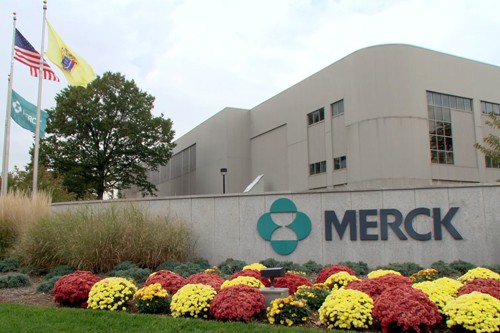
Merck & Co – known as MSD outside the US and Canada – has acquired University at Buffalo’s (UB) laboratory spinout, Abceutics, in a deal worth $208m to improve antibody-drug conjugates (ADC) safety.
The deal included contingent milestone payments based upon the success of candidates under the agreement and Merck will gain access to the preclinical-stage biopharma’s advanced payload-binding selectivity enhancer (PBSE) technology.
First launched in 2020, the start-up specialises in an important emerging class of ADC medicines, which consist of monoclonal antibodies coupled to a cytotoxic payload.
The antibody component of an anticancer ADC works to specifically target the medicine at particular cancer cells, while the cytotoxic payload uses highly potent cell-killing properties to eradicate the targeted cancer cells.
Developed through grants provided by the National Institutes of Health as well as an additional $110,000 from the Buffalo Innovation Accelerator Fund operated by UB’s Business and Entrepreneur Partnerships office, the PBSE technology works to neutralise and stray payload molecules to reduce the impact on healthy cells, “thereby potentially optimising the therapeutic selectively and efficacy of ADC therapy,” said UB researcher, Joseph Balthasar.
David Weinstock, vice president, oncology discovery, Merck Research Laboratories, commented: “The Abceutics team’s… progress in translating this novel idea into reality with a series of candidates and compelling early evidence” will be used by Merck “to further evaluate the potential of this innovative approach in the clinic”.
Brandon Bordeau, co-founder, Absceutics, said: “We are proud to have advanced PBSEs to this stage of development and believe that Merck is well-suited to build upon the progress our company has made.”
In January, Merck announced its acquisition of Harpoon Therapeutics, an immune-oncology company, as well as its pipeline of T-cell engagers, in a deal worth $680m.
As part of the deal, Merck will gain access to Harpoon’s BCMA-directed candidate, HPN217, which is currently being developed to treat relapsed/refractory multiple myeloma, as well as a T-cell engager, HPN328, which targets DLL3 that is expressed in small cell lung cancer and neuroendocrine tumours.
Most recently, Merck announced in March that its anti-PD-1 therapy, Keytruda (pembrolizumab), had been approved by the European Commission for expanded lung cancer use.




